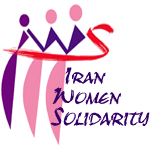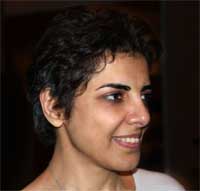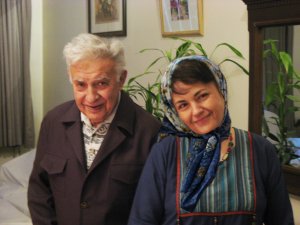She has been sentenced to jail twice and her passport has been confiscated, but Parvin Ardalan, a prominent Iranian activist, refuses to give up her struggle for women’s rights in the conservative Islamic Republic.
“They want to silence all of us,” Ardalan said of the authorities’ attitude to campaigners like herself who demand changes to laws they say discriminate against women.
“They cannot stop me,” the outspoken activist and freelance journalist told Reuters in an interview on Tuesday in her small apartment in downtown Tehran, which also serves as her office.
Ardalan, 41, is a leading figure in a campaign to collect one million signatures in support of improving women’s rights in Iran, whose government rejects Western accusations of abuses.
Campaigners say dozens of them have been detained since the drive began in 2006, in what Western diplomats see as part of a wider clampdown on dissent by President Mahmoud Ahmadinejad’s government. Most were freed within a few days or weeks.
The campaigners say they face institutionalised discrimination that makes them second-class citizens in divorce, inheritance, child custody and other aspects of life.
Iran’s ruling clerics reject the allegations and say Iranian women are protected from the sex symbol status they have in the West and that the country is implementing God’s divine law.
Ardalan received a two-year suspended jail sentence earlier this year for her role in an activists’ gathering in 2007. This followed a partly suspended three-year prison term for involvement in another banned demonstration in 2006.
She said she is appealing the verdicts, which she suggested were designed to restrict her activities.
“Really, I don’t know what they want,” the petite, black-clad woman replied when asked if she might have to go to prison. “I think jail is not important for them … (what) is important is to control us.”
Despite such pressure, “the power of our voice” will increase, she said. “We try to find new methods, new ways, new spaces, new places for continuing our work.”
In March, police stopped her from flying out of Tehran to pick up a $75,000 human rights award in Sweden and seized her passport. Ardalan sent her sister to Stockholm to accept the Olof Palme Prize on her behalf and play a video with her speech.
The Olof Palme Memorial Fund, set up in memory of the Swedish prime minister assassinated in 1986, said Ardalan “succeeded in making the demand for equal rights for men and women a central part of the struggle for democracy in Iran.”
The award, now hanging on her living room wall, raised her profile but did not put an end to her problems.
Ardalan said she was due to appear in court in 10 days’ time in a new case linked to articles she published on the Internet.
A judiciary spokesman said collecting signatures was not a crime, but “making propaganda against the system” was.
Diplomats say the detention of women activists, students and other dissenters may be a response to international pressure over Tehran’s nuclear programme, whose aim Iran says is to generate electricity, not to produce atom bombs.
Ardalan said the signature campaign had succeeded in raising awareness about the position of women in Iran, and had mobilised hundreds of volunteers in the capital and elsewhere. “We try to democratise society. It is a big role that we have.”
One European diplomat said the crackdown on activists had scared people away from the campaign: “As soon as somebody goes out in the street with a list, they get arrested.”


